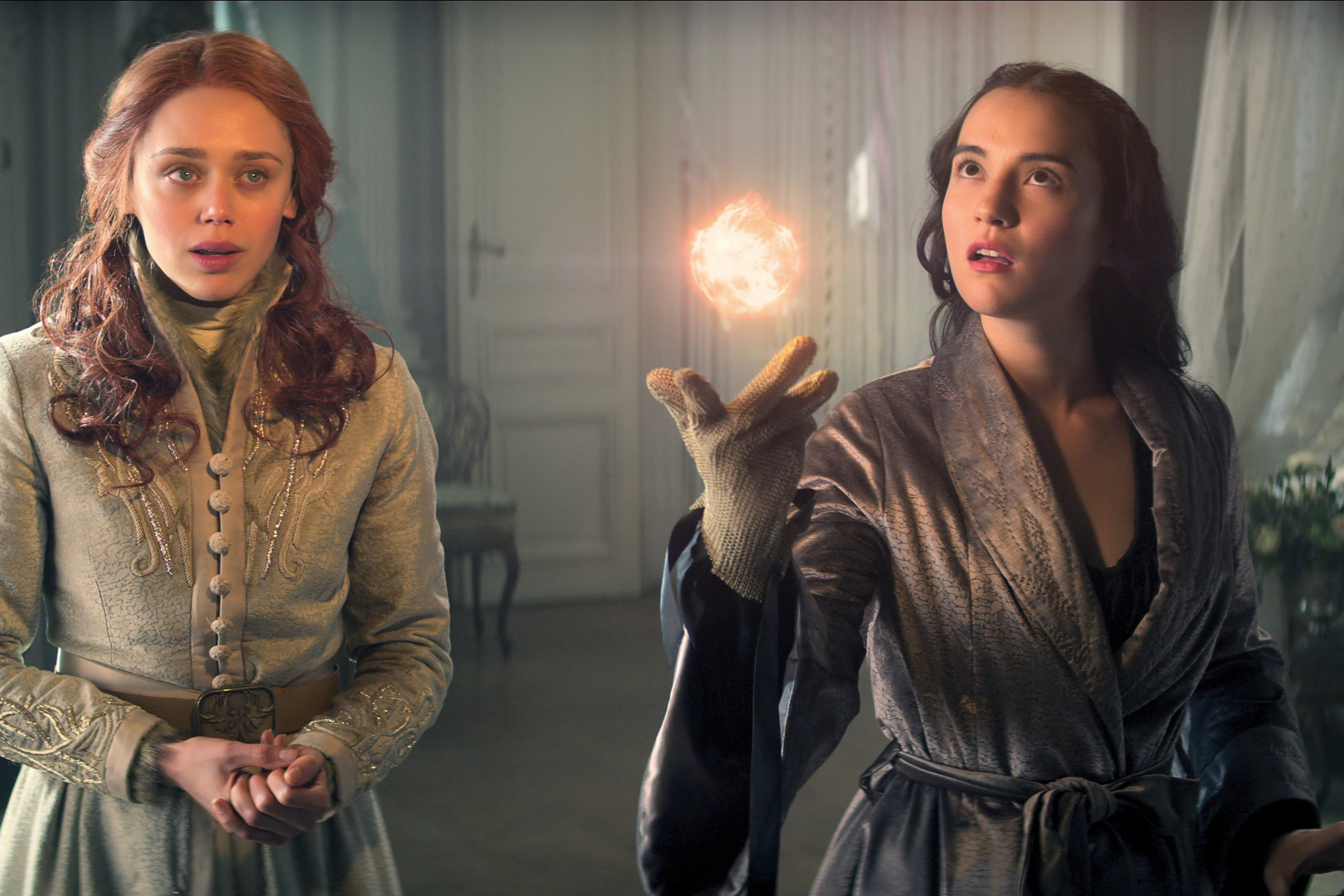While excellent adaptation franchises such as “The Lord of the Rings” and “Harry Potter” helped initiate new trends in both film and literature, it’s now 2021, and the number of upcoming adaptations is overwhelming — and possibly concerning. In a world with more and more book-to-screen listings, the competition is fierce, and many of these films often lack the charm found on the original pages.
It seems that most popular books these days will inevitably become a film on the hottest streaming sites, but is this a good or bad sign for the intersection between books and the big screen? The promising future of TV holds the perfect answer, in contrast to the failures of earlier adaptations.
The Growing Industry
Adaptations, which are stories recreated to fit a new media format, constantly shape the way we consume entertainment.
Book-to-screen adaptations have been around almost as long as feature films, which first entered society over 100 years ago. The 1912 “Oliver Twist,” for example, was one of the earliest adaptations, as was the 1939 “Wizard of Oz.” Since the early decades of film and television, the number of films and TV shows produced has grown steadily, just like most sectors of the entertainment industry.
The world of literature has always been closely intertwined with film and TV, whether through direct adaptations or retellings, like the first traditionally animated feature film, “Snow White and the Seven Dwarves,” or countless other Disney films. Since then, the number of adaptations has increased so much that it’s hard to scroll through a streaming service homepage without seeing a dozen or so.
According to Publishers Marketplace, the number of TV adaptations is steadily climbing closer to the number of original TV programs. The site has listed around 4,000 film and TV deals since it launched in 2000, and 20 years later, the number of TV adaptations exceeded film adaptations for the first time. With the recent and quick rise of streaming services, this number is only expected to increase.
For big streaming services such as Netflix and Amazon, adaptations provide a reliable source of content for multi-season series, which recently led to what was reported as a “book-buying spree” from Netflix and other streaming sites. And if that doesn’t come as a surprise, Rotten Tomatoes currently lists over 125 literary adaptations in development for 2021.
This rise of adaptations has had a massive impact on the publishing industry as a whole, as TV adaptations usually increase the author’s popularity and help drive book sales. Just look at hits such as “Game of Thrones,” “Bridgerton” and “Outlander,” all shows that have brought attention to their book counterparts long after their original publication date.
“Television adaptations are influencing every stage of a book’s life, including how it’s acquired in the first place,” according to The Atlantic. “Scouts from networks and streaming services are talking more and more with publishers about big and small-screen options at earlier stages of negotiations, in many cases before the ink on a book deal is even dry.” As long as the rising quantity of adaptations is on par with their quality, adaptations are sure to make a lasting impact on readers and viewers alike for decades to come.
Not every adaptation is noteworthy, however, and it seems that films are more prone to this issue. Some films such as Netflix’s “The Kissing Booth” are goofy and misrepresent what most book lovers truly want on their screens, causing the average Netflix user to cast a wary eye on teen adaptations. Other adaptations are displeasing due to a lack of direction and development, like the 2010 “Percy Jackson” film.
In comparison to their film counterparts, TV adaptations seem to understand the source material in a way that films rarely do, and the success of these stories on the small screen continues to grow every year.
TV Adaptations Go the Extra Mile
This unprecedented abundance of TV adaptations highlights what shows can provide for audiences that films cannot. “Though many novelists yearn for film adaptations of their books, they quite often wind up dissatisfied with the results, and the same holds true for those novelists’ devoted fans,” said best-selling author Andrew Neiderman in an article for Publishers Weekly.
His novel “The Devil’s Advocate” was adapted for film in 1997, but many of the story’s original elements were removed, including the novel’s ending. “The truth is that a movie cannot hope to capture everything in a novel that readers enjoyed. There is simply not enough time, nor is there enough production money.”
When a TV series is developed from a novel, the story is allowed to unfold in a similar amount of time to what someone could experience when reading the book. TV adaptations let the characters develop organically over a longer period, and the plot complexities can be more drawn out and intricate than when shown over the course of a film.
Additionally, TV adaptations offer opportunities to expand on themes and conflicts already explored in the novel. Many times, major themes and conflicts are left out of film adaptations to preserve time, but shows can give the audience exactly what they need to experience the story at its best — if the show is made right, that is.
Netflix’s recent series “Shadow and Bone” is an example of young adult fiction adapted well and according to the fans’ expectations. The show is based on Leigh Bardugo’s book series of the same name and its sequel series, “Six of Crows.” Although it was an uncommon strategy, the show’s writers chose to combine the two series and intertwine the character arcs throughout each episode. This balance between Bardugo’s original details and the added story elements, in addition to keeping readers engaged with the large cast of characters, was key to the show’s success. Not everything in the show was accurate to the books, but many of the “Six of Crows” elements fit well with the rest of the show, making for satisfied new and original fans.
Beyond the Page
In addition to permitting the original story to develop as it did in the book, TV adaptations also leave room for the showrunners to change elements for the better and bring new ideas into the story.
One great example of a show including such changes and additions is Netflix’s adaptation of “A Series of Unfortunate Events.” Not only did the show do an excellent job of maintaining the original plot and character of the beloved children’s book series, but it also fixed plot holes from the books and added scenes to enhance the audience’s connection to the characters. In contrast to films and even some shows that extract and dissect the author’s work to fit a different audience, Netflix successfully transformed these books from an acclaimed book series to a hit show.
“The Unfortunate Events books are an ode to the quirks, tragedies, and beauty of language,” said film critic Erin Graham in an article detailing the best TV adaptations to date. “To translate this into a visual medium isn’t easy: but the Netflix series nails it. Before jumping the shark, the series ended perfectly at three seasons, remaining loyal to both the series’ structure and its heart.”
Many other hit shows have similarly extended the original story beyond the author’s creation, leveraging complex characters and plots by expanding their value throughout the story, some of which include “Alias Grace,” “Big Little Lies” and “The Handmaid’s Tale.” TV adaptations and their showrunners are gaining the knack for spotting what additions might work or not, which is a positive sign for the future of adaptations.
Room To Grow
In this golden age of streaming, the environment is right for TV adaptations to thrive.
Shows based on fantastic books have loads of potential. As long as authors continue to produce new ideas, the adaptation industry can work to combine books and shows to create the ultimate media form. Because adaptations can help authors achieve success by aiding book sales and opening the TV market for a wider variety of books, stellar TV adaptations are crucial to this cycle of creativity between the page and the screen.














